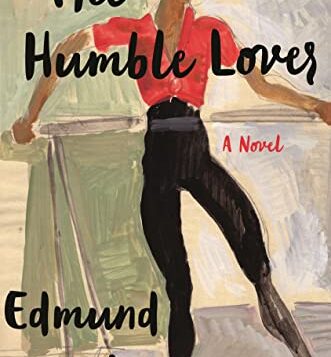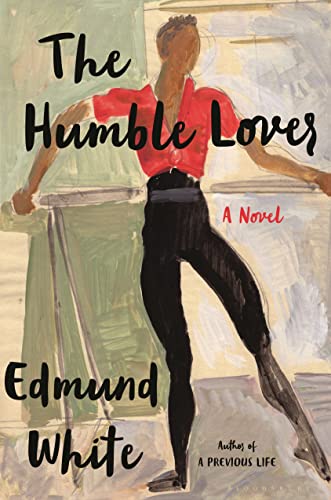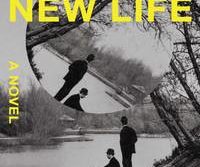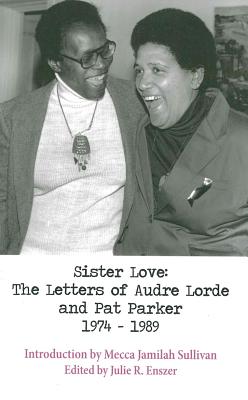EDMUND WHITE’S literary life has been guided by his preoccupations. Everything he writes is animated by these subjects. He would be the first to admit that they are not hard to discern; indeed, he named the chapters of his excellent memoir My Lives (2005) after each of them. They include, but are not limited to: his shrinks, his father, his mother, his hustlers, his women, his Europe, his masters, and his blonds. The Humble Lover touches in some manner on each of these interests.
The Humble Lover is White’s thirty-first published book. With an œuvre as vast as this, it feels a little beside the point to be disappointed by this new novel. As White himself might say, if you’re going to have an orgy, you should expect one or two of the guys to be a dud. The Humble Lover is not quite shooting blanks, but it struggles to reach the heights of artistry that he has set for his work. It is still characteristically White, with irreverent aphorisms and a luxuriant tone, but it feels like a hasty draft of something that could have been greater.
The protagonist, Aldwych West, is a wealthy, elderly man; his riches come from “his family [having]invented the microwave, or maybe something older, like the kitchen stove.” Where his money goes matters much more to him. He maintains a luxurious Upper East Side apartment and spends every night at the ballet admiring the ample buttocks and crotches of the male dancers. It’s on this stage where he first notices the “very pale, very young” August Dupond. A provincial French-Canadian boy, August is trying to climb up the ranks of the New York City Ballet.
Aldwych is obsessed with this waif with an ass of gold. He schemes to get closer and eventually offers August a room in his apartment. August is never quite attracted to him, but Aldwych’s sexual obsession is so consuming that it borders on courtly love. He’s satisfied just to have his dancer near. When August first visits Aldwych’s apartment, Aldwych becomes flustered: “Of course he felt frazzled, but he didn’t want this confusion to distract from the sacrament August was conferring on him by his very presence.”
White’s work at its most breathtaking has always fused the hormonal—needy, horny, grasping for more—with the transcendent. But too often in The Humble Lover, the writing seems to be the equivalent of White showing off old baubles that remind him of past times. After August brings back a particularly loud top one evening, Aldwych makes the excuse to his complaining downstairs neighbor that they were stacking books all night, a story that he’s told before in both My Lives and A Farewell Symphony. There are repeated stories from White’s previous works about the psychoanalyst Jacques Lacan overcharging patients, and of lusty adolescent Venetian speedboat operators. At one point, Aldwych, alone and melancholy in a Biarritz hotel suite, reminisces about his lost loves: “Stan, Troy, Giuseppe, Keith and Jim Ruddy.” All of these men White has written about previously—just not in The Humble Lover. They are never mentioned again in the text.
White has always been brilliant at mingling the explicit—sex, scatology, domination, and subjection—with the romantic. There’s nothing wrong with covering the same thematic ground again and again—all writers do it—but one looks for a different view of humanity to shine through with each new iteration. The novel’s villain, Ernestine, is the rich wife of Aldwych’s nephew. She’s a sexual sadist who wants to steal August away from Aldwych and turn him into her own slave. There are only quick feints to a deeper background or understanding of who she is. August similarly remains, at least until the last third of the novel, somewhat of a cipher, perhaps befitting his role as its objet d’ass.
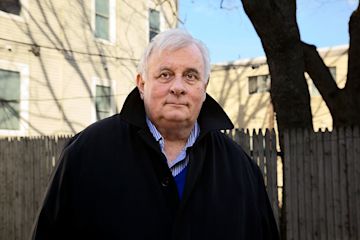
For all that, there are still brilliant moments in this novel. There’s a passage in which we learn that Aldwych loved to dance as a young man, but only secretly when his father would leave the house. As White describes it: “he took his cue from the music, which he knew by heart. He would stand on his toes, lie briefly and lightly on his back on the sofa, fluttering his legs in entrechats in the air … cling to the back of a chair in order to extend his right leg far, far behind him without losing his balance. He felt so free, so exalted, so pagan as he spun, crouched, leapt, imagining that his bluish-white body was exciting the imagined adult male observer in the shadows.” It is here, in the gilded remembrance of his alter ego, that White takes flight—free, shimmering, and seen by us all.
Carr Harkrader, a writer and critic in Chicago, has written for Necessary Fiction, The Washington Independent Review of Books, and The Assembly.


